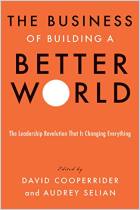Únase a getAbstract para acceder al resumen.

Únase a getAbstract para acceder al resumen.
Banny Banerjee
Systems Leadership
Tackling Complexity and Scale
Aspen Institute, 2017
¿De qué se trata?
In today’s “transformation economy,” systems are the focus.
Recommendation
Take a seat in the virtual lecture hall of Stanford professor Banny Banerjee. A co-creator of design thinking, Banerjee explains that although its human-centered approach is ideal for some problems, other issues are vast, intertwined, urgent and complex: Think poverty or food and energy shortages. Such systemic problems call for a new innovation method and mind-set. getAbstract believes leaders, designers, policy makers and anyone pitted against a massive problem will benefit from this cerebral plunge into “systems leadership.”
Summary
About the Speaker
Professor Banny Banerjee directs Stanford ChangeLabs and teaches Design Innovation and Strategy at Stanford.



















Comment on this summary